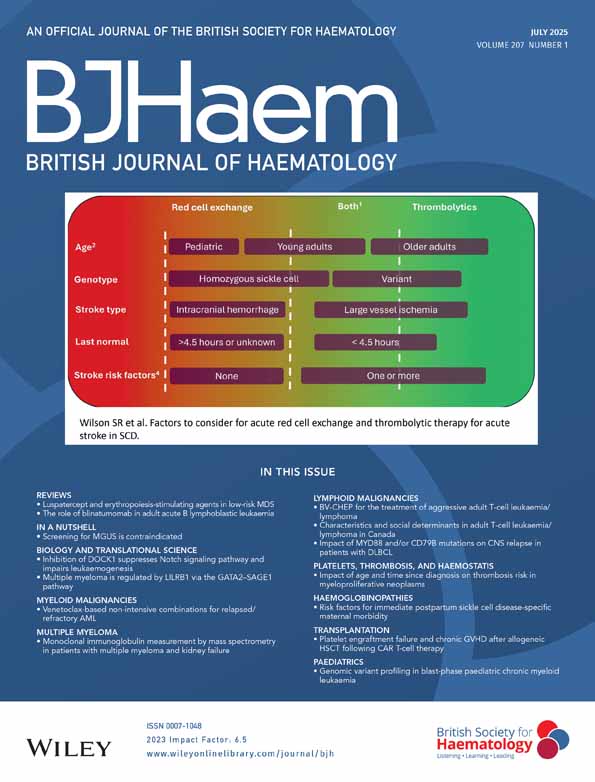Effects of recombinant interleukin 4 on the growth and differentiation of blast progenitors stimulated with G-CSF, GM-CSF and IL-3 from acute myeloblastic leukaemia patients
Abstract
Summary The effects of human recombinant interleukin 4 (rIL-4) on the growth of leukaemic blast progenitors were investigated. Cells obtained from 20 acute myeloblastic leukaemia (AML) patients were evaluated using the blast colony assay in methylcellulose and suspension cultures. While rIL-4 by itself did not show any colony stimulatory activity in the blast colony assay, it suppressed the blast colony formation in methylcellulose stimulated with G-CSF, GM-CSF or IL-3 in 14 patients. In another six patients, rIL-4 enhanced blast colony growth in four patients or did not show any significant effect with any CSF in two patients. In suspension cultures of 12 cases studied, the effects of rIL-4 on the clonogenic cell recoveries were essentially similar to the results of the blast colony assay in each case. In three patients, rIL-4 augmented the differentiation of the leukaemic cells to monocyte lineage. Further, the clinical outcome was significantly different between the patients whose blast progenitors were stimulated by rIL-4 and the patients whose blast progenitors were suppressed by rIL-4 (P<0.05): three out of four patients in the former group failed in achieving complete remission (CR), while 12 out of 14 patients in the latter group achieved CR. The results show that the effects of IL-4 on leukaemic blast progenitors were diverse and the responsiveness to IL-4 may be correlated with the prognoses of the patients.




